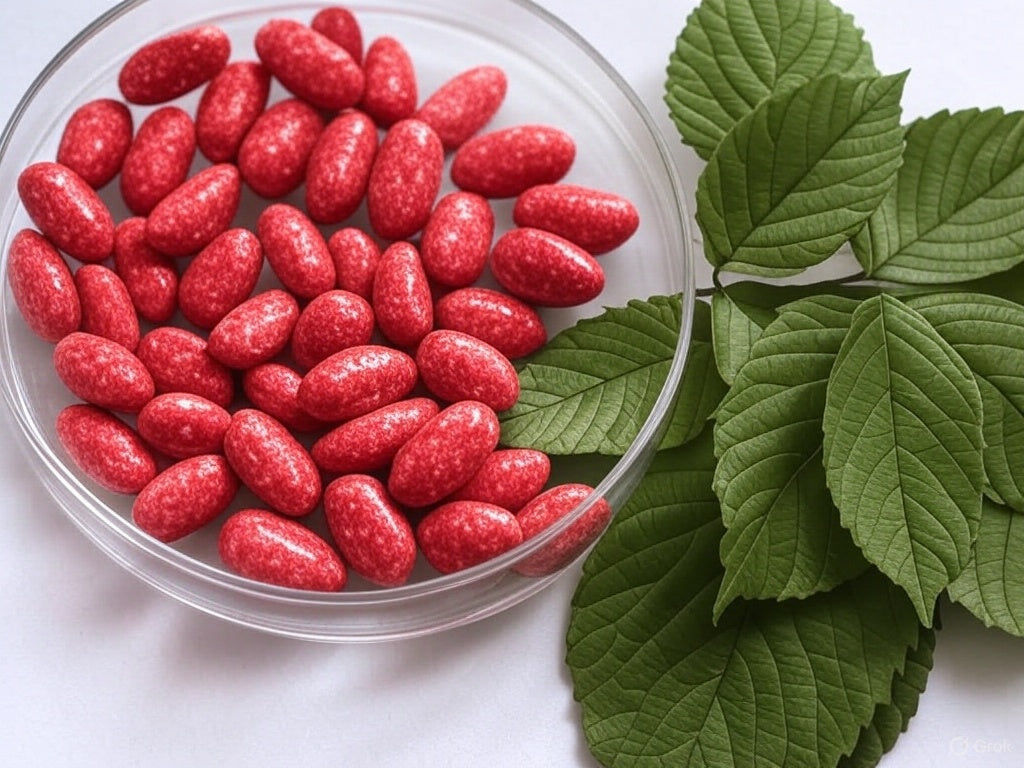

· By Akshay Gopal
Myths vs. Facts: The Truth About 7OH, Mitragynine & Kratom Alternatives
Kratom, 7-hydroxymitragynine, and various 7OH products have been at the center of much debate in the wellness community. In fact, 7OH vs kratom comparisons often spark questions around legality, potency, and overall safety. Below, we’ll tackle common misconceptions about 7OhHeaven products, how they relate to traditional kratom, and why clarity is so crucial for those looking to buy 7OH extract responsibly.
Myth #1: 7OH Is Exactly the Same as Kratom
Fact: While 7OH is derived from kratom’s natural alkaloid profile—particularly 7-hydroxymitragynine—it isn’t identical to raw kratom leaf. Think of 7OH as a highly refined and targeted extract. Traditional kratom powder contains multiple alkaloids and plant matter, whereas 7OH focuses on a key component known for its distinct potential benefits. This concentrated approach is why many people explore 7OH vs kratom to see which option fits their goals.
Key Takeaway
- 7OH = a purified extract that highlights the key alkaloid (7-hydroxymitragynine).
- Kratom Leaf = a broader alkaloid spectrum, which can vary in potency and consistency.
Myth #2: 7-Hydroxymitragynine Is Illegal Everywhere
Fact: Legality varies by region, but 7-hydroxymitragynine itself is often unregulated or exists in a legal gray area, much like kratom products. It’s crucial to follow your local laws when deciding to buy 7OH extract. Reputable manufacturers and vendors typically stay informed about ever-evolving legislation, ensuring their products meet regional requirements.
Key Takeaway
- Always check local guidelines before purchasing any plant-based or alkaloid-focused supplement.
- Opt for brands that prioritize transparency and legality, displaying sourcing information and compliance measures.
Myth #3: Extracts Like 7OH Are Always More Dangerous
Fact: Concentrated extracts can be potent, but “more potent” doesn’t automatically translate to “more dangerous.” Whether you’re evaluating 7OH vs kratom or any other botanical product, responsible usage and careful dosing are paramount. Look for well-reviewed brands that provide clear dosing guidelines and testing certificates.
Key Takeaway
- Potency means you may need a smaller dose for the desired effect; it doesn’t mean inherently unsafe.
- Quality assurance, lab testing, and proper education reduce risks.
Myth #4: Buying 7OH Extract Online Is Risky
Fact: The internet is full of options, but not all vendors are created equal. It’s entirely possible to buy 7OH extract online safely—if you choose trustworthy suppliers who share details about lab testing and source materials. The real risk lies in purchasing untested or poorly labeled extracts that offer no quality assurance.
Key Takeaway
- Seek out transparent vendors with established reputations, positive user feedback, and third-party lab results.
- Avoid deals that appear “too good to be true,” as they often lack the rigorous standards necessary for safety.
Myth #5: You Can’t Use 7OH and Kratom Alternatives Together
Fact: Combining 7OH with other kratom alternatives or botanicals can be part of a personalized approach, provided you do so responsibly. If you’re exploring synergy or complementary effects, consult with a healthcare professional, especially if you have any pre-existing conditions or are on medication.
Key Takeaway
- Each individual reacts differently to botanical extracts.
- Seek professional guidance and start with smaller servings if combining products.
Conclusion
Misinformation abounds when it comes to 7-hydroxymitragynine, kratom, and plant-based extracts. By separating facts from fiction, you can make more informed decisions about whether to buy 7OH extract or stick to standard kratom products. Whichever path you choose, a thoughtful, well-researched approach to wellness ensures you get the most benefit with minimal risks espeically when buying from a trusted vendor like 7ohheaven.

